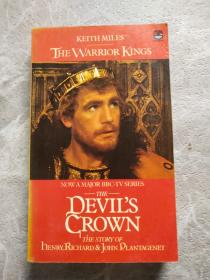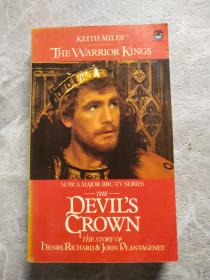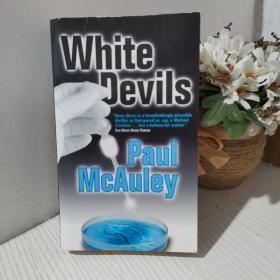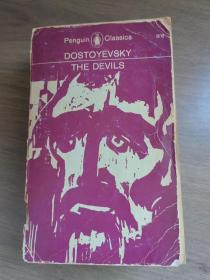
Devils(WordsworthClassics)[群魔]
¥ 50 八五品
仅1件
广东汕头
认证卖家担保交易快速发货售后保障
作者Fyodor Dostoevsky 著;Constance Garnett、Richard Nicholson 译
出版社Wordsworth
出版时间2010-01
装帧平装
货号地121
上书时间2024-12-15
- 最新上架
商品详情
- 品相描述:八五品
图书标准信息
- 作者 Fyodor Dostoevsky 著;Constance Garnett、Richard Nicholson 译
- 出版社 Wordsworth
- 出版时间 2010-01
- ISBN 9781840220995
- 定价 31.40元
- 装帧 平装
- 纸张 胶版纸
- 页数 720页
- 正文语种 英语
- 【内容简介】
- With an Introduction by A.D.P. Briggs and translated by Constance Garnett. In 1869 a young Russian was strangled, shot through the head and thrown into a pond. His crime? A wish to leave small group of violent revolutionaries, from which he had become alienated. Dostoevsky takes this real-life catastrophe as the subject and culmination of Devils, a title that refers the young radicals themselves and also to the materialistic ideas that possessed the minds of many thinking people Russian society at the time. The satirical portraits of the revolutionaries, with their naivety, ludicrous single-mindedness and readiness for murder and destruction, might seem exaggerated - until we consider their all-too-recognisable descendants in the real world ever since. The key figure in the novel, however, is beyond politics. Nikolay Stavrogin, another product of rationalism run wild, exercises his charisma with ruthless authority and total amorality. His unhappiness is accounted for when he confesses to a ghastly sexual crime - in a chapter long suppressed by the censor. This prophetic account of modern morals and politics, with its fifty-odd characters, amazing events and challenging ideas, is seen by some critics as Dostoevsky s masterpiece.
- 【作者简介】
-
Dostoevsky was no stranger to adversity and struggle. Born into a family of nine in October 1821, his mother died when he was sixteen, causing the family split up. After Dostoevsky was sent to a military academy with his brother, their army surgeon father was murdered by his own serfs. Even his first wife (whose traits, critics say, manifest themselves in the character of Katerina Ivanvna) died of tuberculosis. Though his first book, Poor Folk, earned him an invitation into the Natural School of Russian Literature in the 1840s, he was convicted of subversion against Tsar Nicholas I in 1849 and exiled to Siberia. By the time Crime and Punishment was published in 1866, he had returned from exile and prison, and had developed the bleak outlook that pervades the novel.
费奥多尔·米哈伊洛维奇·陀思妥耶夫斯基(1821~1881)是19世纪群星灿烂的俄国文坛上一颗耀眼的明星,与列夫·托尔斯泰、屠格涅夫等人齐名,是俄国文学的卓越代表,他所走过的是一条极为艰辛、复杂的生活与创作道路,是俄国文学史上最复杂、最矛盾的作家之一。即如有人所说“托尔斯泰代表了俄罗斯文学的广度,陀思妥耶夫斯基则代表了俄罗斯文学的深度”。
1821年11月11日,陀思妥耶夫斯基出生在俄罗斯的一个医生家庭。他的童年是在父亲的庄园里度过的,因而接触到了农奴的实际生活。1834年他进入莫斯科契尔马克寄宿中学,毕业后入彼得堡军事工程学校,在该校工程部制图局工作。一年后,他自动离职,专门从事文学创作。1846年,他写出了自己的第一部作品《穷人》。小说一出版,即轰动文坛,受到读者的普遍赞扬。文学批评家别林斯基称之为“社会小说的第一次尝试”。之后,他又先后写出了《双重人格》、《女房东》、《白夜》和《脆弱的心》等几个中篇小说,以及其代表作《罪与罚》。
点击展开
点击收起
相关推荐
— 没有更多了 —
![Devils(WordsworthClassics)[群魔]](https://www0.kfzimg.com/sw/kfz-cos/kfzimg/fcfeabbb/369edcc31994fff3_b.jpg)










![Devils(WordsworthClassics)[群魔]](/dist/img/error.jpg)










以下为对购买帮助不大的评价